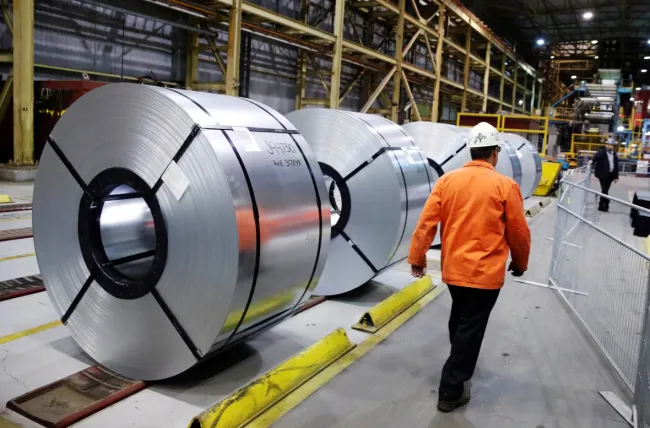Canada vs. Trump: The Trade War Escalates—And It’s Going to Hurt
The economic showdown between Canada and the U.S. has officially begun, and the consequences could be severe. After weeks of threats, Donald Trump is following through on his promise to impose heavy tariffs, hitting Canadian and Mexican imports with a 25% tax and slapping an additional 10% levy on Chinese goods. Even Canada’s energy sector isn’t spared, facing a 10% tariff.
Canada Strikes Back
Ottawa isn’t sitting idle. In response, Canada is imposing a 25% tariff on $30 billion worth of U.S. imports, starting Tuesday. And in just three weeks, that number will skyrocket to $125 billion. With neither side backing down, this trade war will disrupt industries, drive up costs, and hit everyday Canadians hard.
How This Trade War Will Affect Canadians
Rising Prices for Everyday Goods
The Bank of Montreal is warning of a possible recession if these tariffs remain in place for a year. The ripple effects will be felt everywhere—supply chains will be thrown into disarray, demand for Canadian goods in the U.S. will shrink, and prices at home will rise.
“Canadians should brace for higher costs on groceries, household appliances, and especially cars,” says economist Tu Nguyen. A weaker Canadian dollar may soften the impact for exporters, but it will worsen inflation for consumers and businesses.
Job Losses and Higher Unemployment
With rising prices comes a decline in demand, which threatens jobs across multiple industries, particularly manufacturing, tourism, and transportation.
Nguyen warns that higher unemployment will ripple through the economy, hitting restaurants, entertainment, and hospitality the hardest. As people tighten their wallets, businesses will struggle, and more layoffs will follow.
Auto Industry Faces Major Disruptions
The North American auto industry is highly integrated, and these tariffs could bring it to a standstill. Since production relies on a complex cross-border supply chain, factory shutdowns and price hikes are inevitable.
“The auto sector is in serious trouble,” warns Brian Kingston of the Canadian Vehicle Manufacturers’ Association. Finding new suppliers and markets won’t happen overnight, meaning both automakers and consumers will feel the pinch.
Steel and Aluminum Under Fire
Trump’s tariffs have drawn strong backlash from labor unions on both sides of the border. The United Steelworkers union warns that this trade war doesn’t just hurt Canada—it threatens U.S. industries as well.
The Aluminium Association of Canada called the tariffs “economically reckless”, emphasizing that American manufacturers depend on Canadian aluminum. Consumers will see price hikes on everything from electronics to household goods.
American Alcohol Gets Pulled from Canadian Shelves
In a bold move, multiple Canadian provinces—including Ontario, British Columbia, Newfoundland and Labrador, and Nova Scotia—are removing U.S. alcohol from their liquor stores in response to Trump’s tariffs.
Ontario Premier Doug Ford has ordered all LCBO stores to stop selling American booze, ensuring that restaurants and retailers can’t restock these products.
British Columbia has taken an even more targeted approach, banning alcohol imports from Republican “red states” as an act of economic resistance. Meanwhile, Newfoundland and Labrador has followed suit, with Premier Andrew Furey calling on Canadians to boycott U.S. products and push back against economic aggression.
Energy: A Smaller Hit, But Still Significant
The energy sector is facing a 10% tariff, but some oil companies say the short-term impact will be limited, thanks to pre-negotiated pricing deals. However, experts warn that the long-term consequences could be damaging.
Beef Industry Braces for a Crisis
Canada’s beef industry is on edge, with 35% of its exports heading to the U.S. If American buyers pull back, an oversupply of beef in Canada could drive down prices temporarily, which may benefit consumers but devastate farmers and processors.
Russ Mallard of the Canadian Meat Council warns that finding new markets won’t happen overnight, and many in the industry could suffer major financial losses.
What’s Next? A Brutal Economic Standoff
Trump has thrown down the gauntlet, and Canada is pushing back hard. But with rising costs, job losses, and industry disruptions looming, the real question is: who will blink first?
For Canadians, this isn’t just a political spat—it’s a direct hit to their wallets, job security, and cost of living. And as tensions rise, the worst may still be yet to come.
